VMU Scientists: Lithuanian Youth’s Influence in Politics Is Growing

“Recently, political parties in Lithuania have seen an influx of younger members. This trend was evident in the latest municipal elections and the ongoing parliamentary campaign. Alongside their main activities, parties are developing youth organisations and preparing future party leaders. Furthermore, the Seimas has passed legislation allowing the creation of think tanks alongside parties, which many have taken advantage of. We see a lot of young faces in these think tanks, and many events are held thanks to them, which is encouraging,” remarks Andžejus Pukšto, Associate Professor at the Faculty of Political Science and Diplomacy of Vytautas Magnus University (VMU), highlighting the growing role of youth in national politics.
He notes that European parties and political leaders are now also considerably younger than in the past. Overall, there is no shortage of positive aspects when discussing the future of politics, both in Lithuania and Europe. “The last European Parliament elections demonstrated that there is still a place for traditional parties and stability. Lithuania is actively engaging in regional cooperation – we are part of the Nordic-Baltic Eight, the Bucharest Nine, and the Three Seas Initiative. Lithuania’s voice is heard in Brussels and other capitals,” Assoc. Prof. Pukšto emphasises.
Statistics indicate that European youth’s interest in politics is robust. A 2021 European Parliament Youth Survey showed that an impressive 87% of the 18,000 young people aged 16-30 surveyed had participated in at least one political or civic activity. Nearly half (46%) had voted in municipal, national, or EU-level elections. Ingrida Unikaitė-Jakuntavičienė, political scientist and Associate Professor at Vytautas Magnus University, observes that similar levels of youth activity were evident in the recent Lithuanian Presidential elections, with 49% of young people voting in the first round this year.
“Lithuanian youth, like youth in many other countries, often underestimate their capabilities and influence, thinking they lack knowledge and frequently leaving political decisions to older generations. However, those young people who are interested in politics are indeed active, not only in the non-governmental sector but also in political organisations and elections,” the associate professor explains.
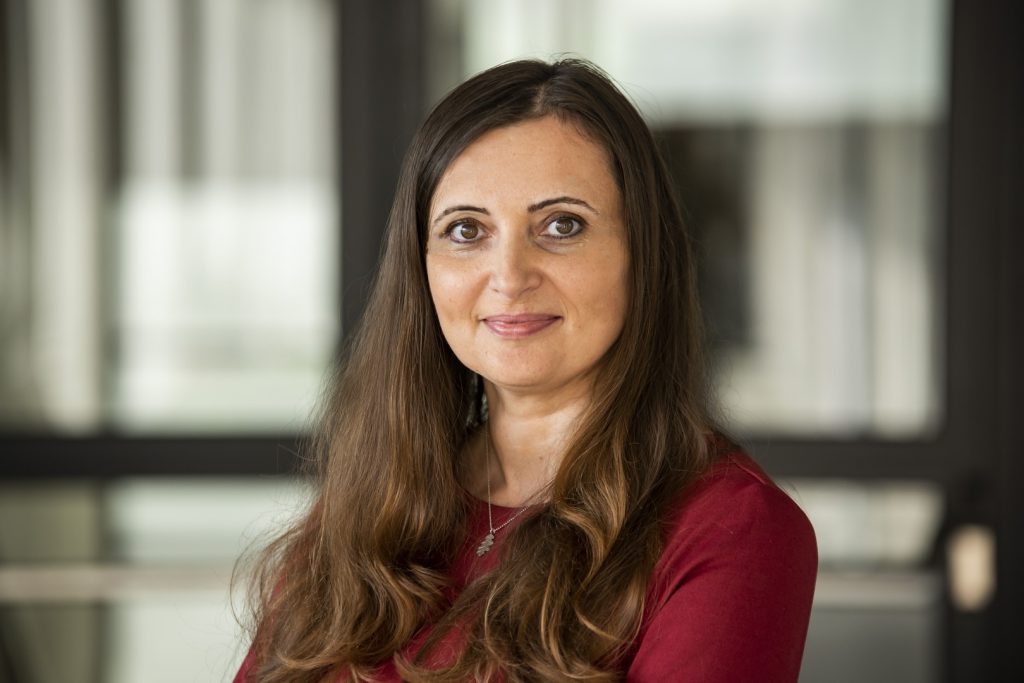
Assoc. Prof. Dr. Ingrida Unikaitė-Jakuntavičienė. Photo by Jonas Petronis.
Interest in politics – an integral part of life
According to the researchers, an interest in politics is an integral part of life in modern society: decisions made by politicians elected through voting directly affect our daily lives, determining tax levels, migration and visa policies, the quality of the healthcare system, educational opportunities, environmental policy, and many other aspects.
“Furthermore, politically active and informed citizens can exert pressure on the government to implement necessary reforms and address pressing issues. This contributes to societal progress and improvement. By engaging with politics, we contribute to the creation of a stronger, more conscious, and fairer society,” Assoc. Prof. Ingrida Unikaitė-Jakuntavičienė summarises.
Increasing interest in politics among the youth and the rest of the public can be achieved in various ways – for instance, through more active education, integrating political science and citizenship education into school curricula, and explaining political processes in simple terms using modern tools such as virtual debates or interactive games. Universities also play a crucial role in this.
“Interest in politics is encouraged by both governmental and non-governmental institutions, as well as representations and divisions of European Union institutions. Educational institutions, including universities, also play a significant role. Vytautas Magnus University is a prime example in this context,” notes Assoc. Prof. Andžejus Pukšto, highlighting that VMU, in partnership with colleagues from the US, organised a conference last year dedicated to studies and research on the Baltic region. Additionally, the university’s studies in political science are particularly distinctive.
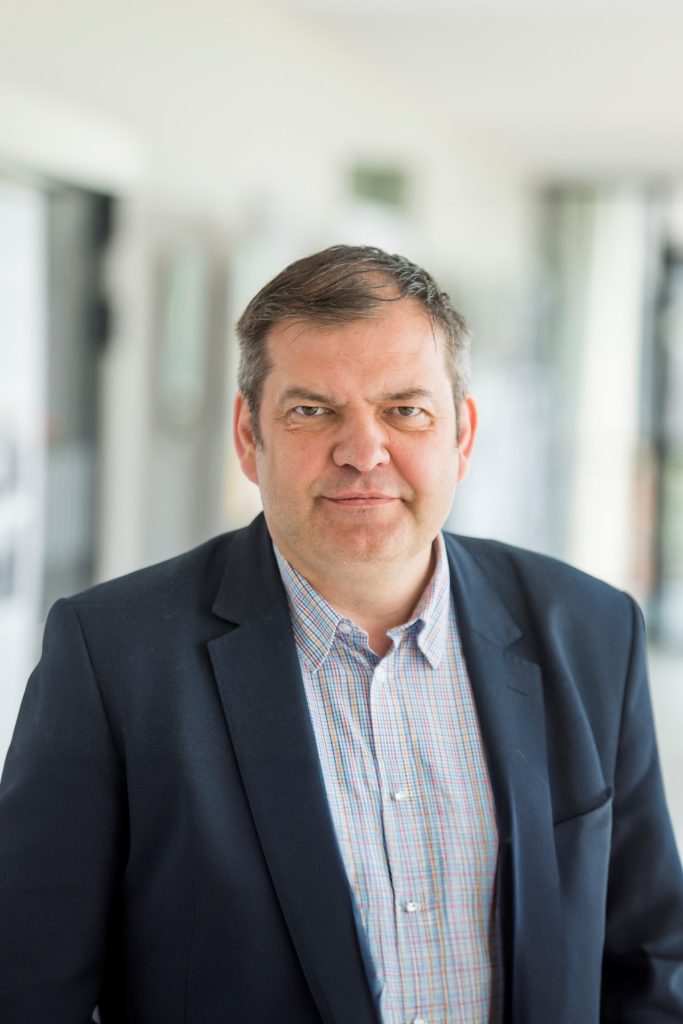
Assoc. Prof. Dr. Andžejus Pukšto. Photo by VMU.
VMU Political studies: “Think globally, act locally”
The Political Studies Bachelor’s programme offered at the VMU Faculty of Political Science and Diplomacy is being updated this year. Previously known as the Political Science study programme, it will now offer students the opportunity to choose one of three more specific specialisations: International Politics and Development, Political Science and Leadership, or World Politics and Economics. These specialisations aim to help students select a specific area of political science that interests them for their future careers.
“The motto ‘Think globally, act locally’ remains as relevant as ever in both business and education. On the one hand, students need to understand international relations and global politics; on the other, they must have a certain specialisation and delve into a specific area, as it is impossible to learn everything,” emphasises Assoc. Prof. Andžejus Pukšto.
He notes that VMU stands out from other institutions by providing a very broad education. Students can arrange their own schedules, augment their speciality subjects with disciplines from other areas of interest, and deepen their knowledge and skills in languages, entrepreneurship, and various other fields. As a result, graduates find employment in a wide range of jobs.
“Unlike vocational schools and some other higher education institutions, Vytautas Magnus University offers a very broad education, hence our graduates work in Lithuanian state institutions, in diplomacy, in municipalities, and in international organisations, as well as in non-governmental organisations, businesses, and the media,” Assoc. Prof. Pukšto points out.
According to interviewees, although the Political Studies programme has changed its name, its distinctive features remain: highly qualified political science teachers; interdisciplinarity – integrating economics, social sciences, humanities, and other sciences into the teaching of political science; and internationalisation, including exceptional opportunities to learn foreign languages, participate in exchange programmes, and study at foreign universities.
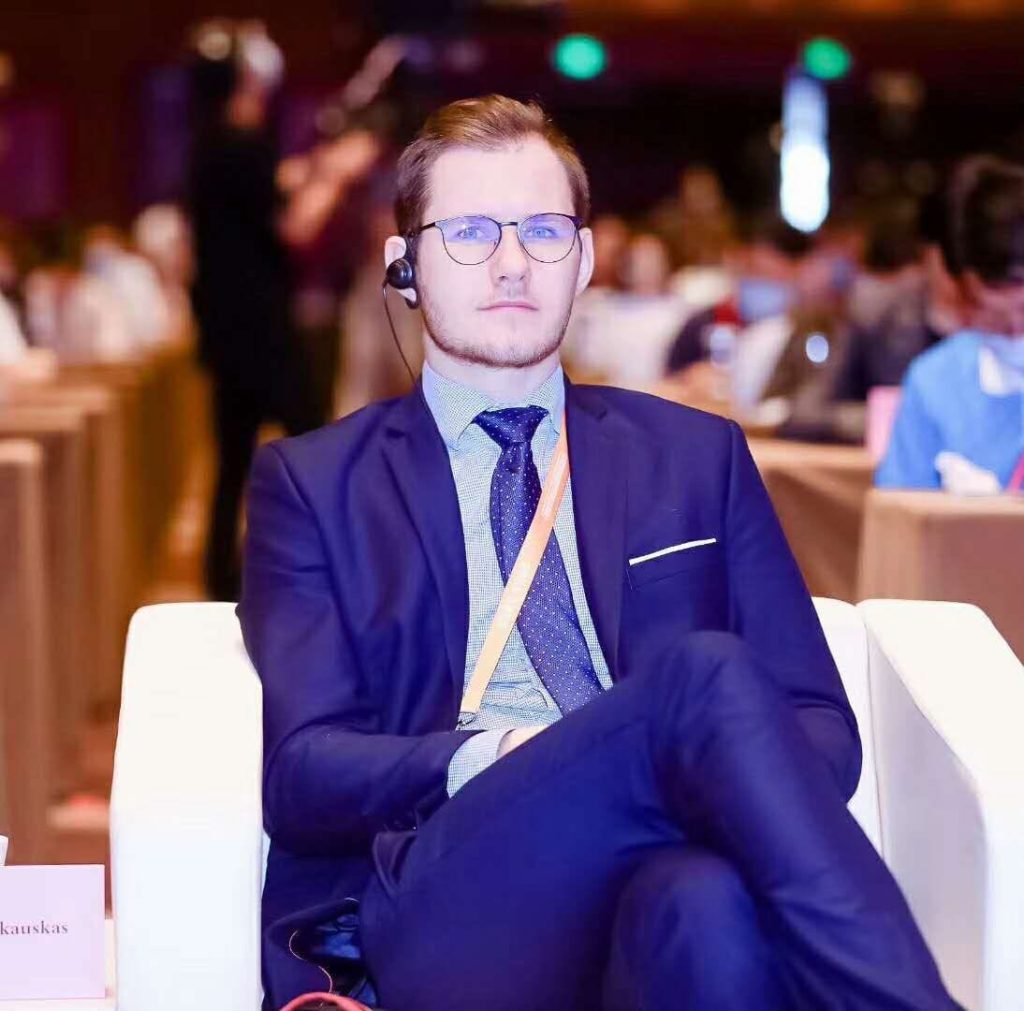
Andrius Sankauskas. Photo from personal archive.
Freedom of choice comes with responsibility
Graduates of the VMU Political Science Bachelor’s programme have pursued diverse career paths, including becoming members of the Seimas, assistants to MEPs, ministers, and employees at various international institutions, organisations, and think tanks. One such graduate, Andrius Sankauskas, currently serves as the Commercial Attaché of the Republic of Lithuania in South Korea. This job, which involves constant cooperation with international business, requires flexibility, adaptability, and a broader perspective. According to Sankauskas, all these qualities were provided by his studies at VMU, which allows students to independently structure their schedule and choose subjects alongside their specialisation to broaden their competencies.
“The freedom of choice comes with certain responsibilities, as you are essentially laying out your own future plan. Moreover, the university offers minor studies, which enable you to create an even broader profile as a future specialist; for example, studying economics alongside political science,” explains Andrius Sankauskas, adding that opportunities to study abroad through exchange programmes and to do internships at international organisations, gaining insight into their operations, were immensely beneficial.
“Language skills and internationalism are also crucial. In my role, it’s essential to communicate with people from different cultures. Cultural shocks are manageable for some, while others find them challenging. By taking advantage of the university’s offerings, you can greatly expand your horizons. The most valuable skill I acquired at the university was international communication, which I now use in my work,” notes the Commercial Attaché in South Korea.
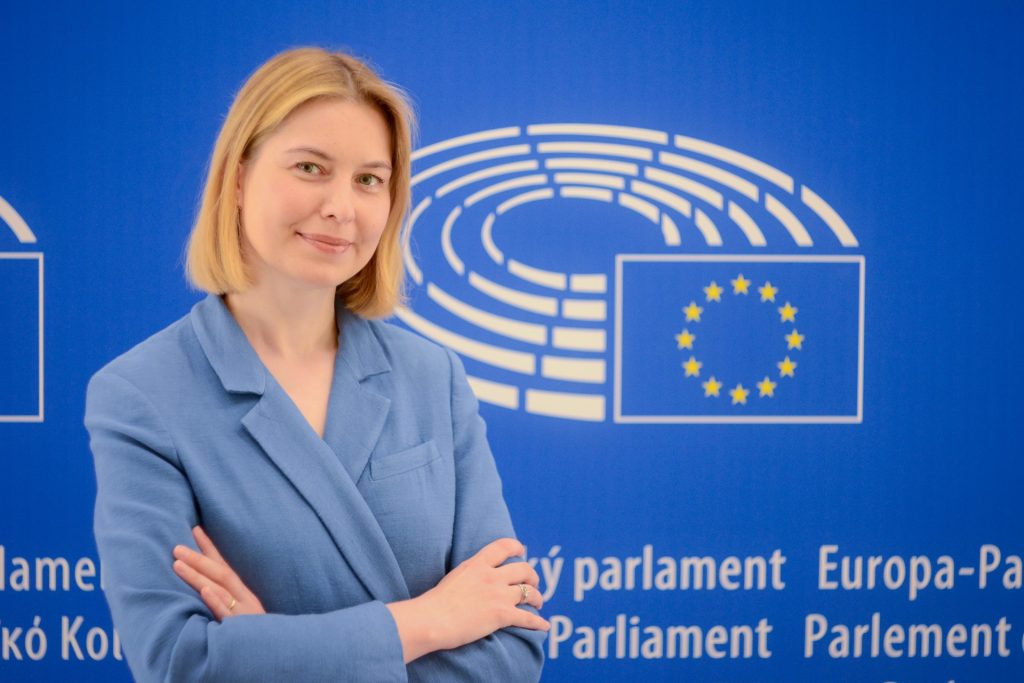
Dovilė Šukytė. Photo by Nikoloz Tokhvadze.
Studies gave wings: helped secure employment in the European Parliament
Another graduate of this programme, Dovilė Šukytė, assistant to MEP Petras Auštrevičius, shares that VMU’s flexibility was instrumental in her securing a position in one of the world’s largest democratic assemblies, the European Parliament.
“My studies at the VMU Institute of Political Science and Diplomacy, now a faculty, laid the foundations for my professional activities – or rather, gave me wings! VMU’s tradition of liberal arts, where students, alongside compulsory subjects of their chosen discipline, can freely select additional subjects of interest, allows them to fulfil their desires, discover new things, and establish connections with students from other faculties,” Šukytė emphasises.
“Whether working in Lithuania at the Eastern Europe Studies Centre or currently in the European Parliament, I maintain connections and eagerly involve VMU academics in analytical discussions, where their insights and experience are invaluable. Additionally, VMU students are among the best interns I have had,” she says, recalling that during her studies she particularly enjoyed the university’s friendly community and warm interactions with the teachers.
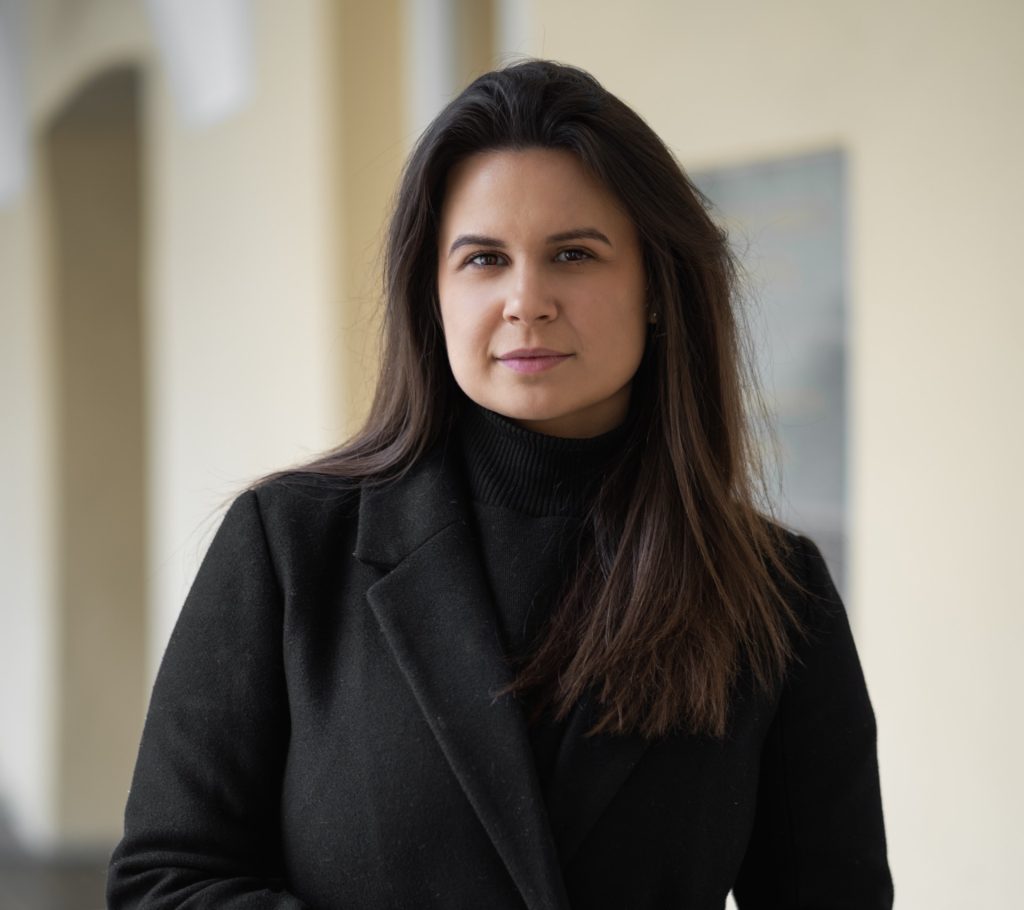
Inga Samoškaitė. Photo by Gabija Kavaliauskaitė.
VMU’s advantage – flexibility and interdisciplinarity
Inga Samoškaitė, a graduate of the VMU Political Science programme, is currently employed at the “Atlantic Council,” a major US think tank, which boasts 900 experts from around the world. She also emphasises that her decision to study this programme undoubtedly contributed to her career success.
“If it weren’t for VMU and its flexibility, I probably wouldn’t be at the ‘Atlantic Council’ now, which is a leading analytical centre not only in the US but also globally. While studying, I was able to work and fulfil myself. The understanding and support from the teachers were a big part of why I am where I am today. As we know, other universities might not be as flexible,” Samoškaitė highlights the ability to balance work and studies.
She assures that studying political science at VMU helped her acquire essential skills for her current role, such as articulating thoughts and writing analytical papers, which are now part of her daily work. Additionally, the opportunity to enhance her entrepreneurial skills at the VMU Entrepreneurship Academy, now known as “Minded,” proved valuable.
“American think tanks operate in such a way that you need to have a knack for entrepreneurship, as you need to secure funding for activities – thus, the interdisciplinary approach provided by VMU is beneficial to this day,” observes Samoškaitė.
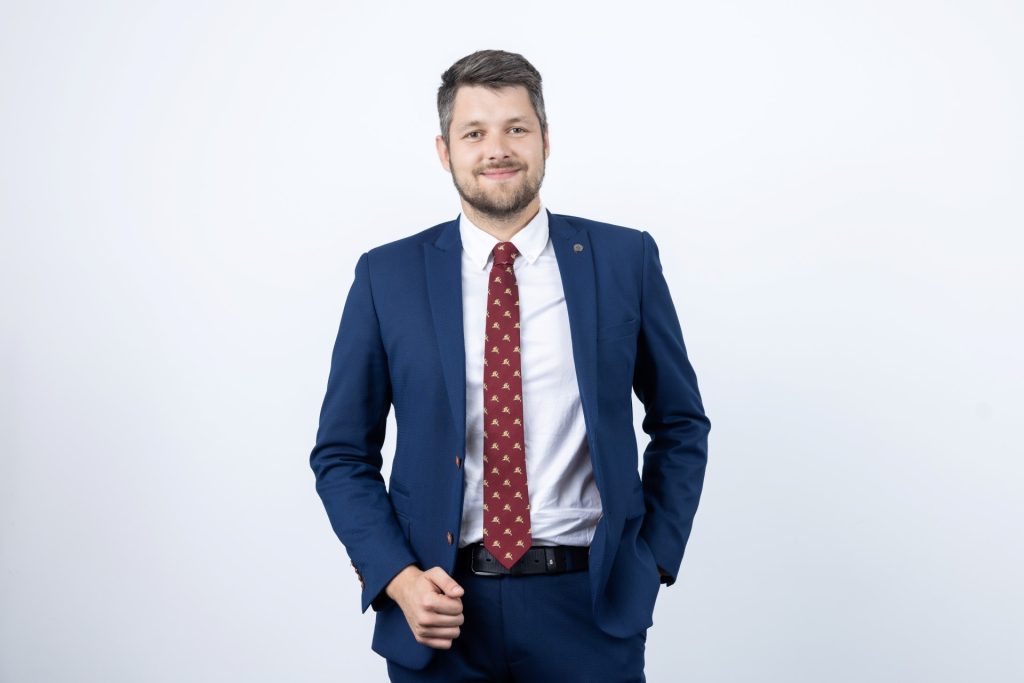
Lukas Fabijonavičius. Photo from personal archive.
The true spirit of University: mutual respect and uncomfortable topics
VMU political science alumnus Lukas Fabijonavičius, Coordinator at the “ICT Lab” Innovation Agency, notes that his studies at this university also stood out for their exceptional freedom compared to other higher education institutions. For instance, he recalls mutually respectful discussions with teachers who encouraged debating uncomfortable topics.
“This is the true principle of the university. The Artes Liberales education didn’t involve memorising huge amounts of information but helped to develop a thinking personality. From the University, I took and gave as much as I wanted. VMU left an impression on me as a university for individuals. Moreover, thanks to VMU, I managed to go to the US and work at the research centre CEPA, and the competencies I gained allowed me to return and contribute to Lithuania,” the graduate warmly praises the University. According to him, his current workplace, the Innovation Agency, shares similar values – it is also open to ideas and allows its people the freedom to act in pursuit of their mission.
VMU Political Studies: Political Science and Leadership (in Lithuanian)
VMU Political Studies: World Politics and Economics (in Lithuanian)
VMU Political Studies: International Politics and Development Studies (in English)









